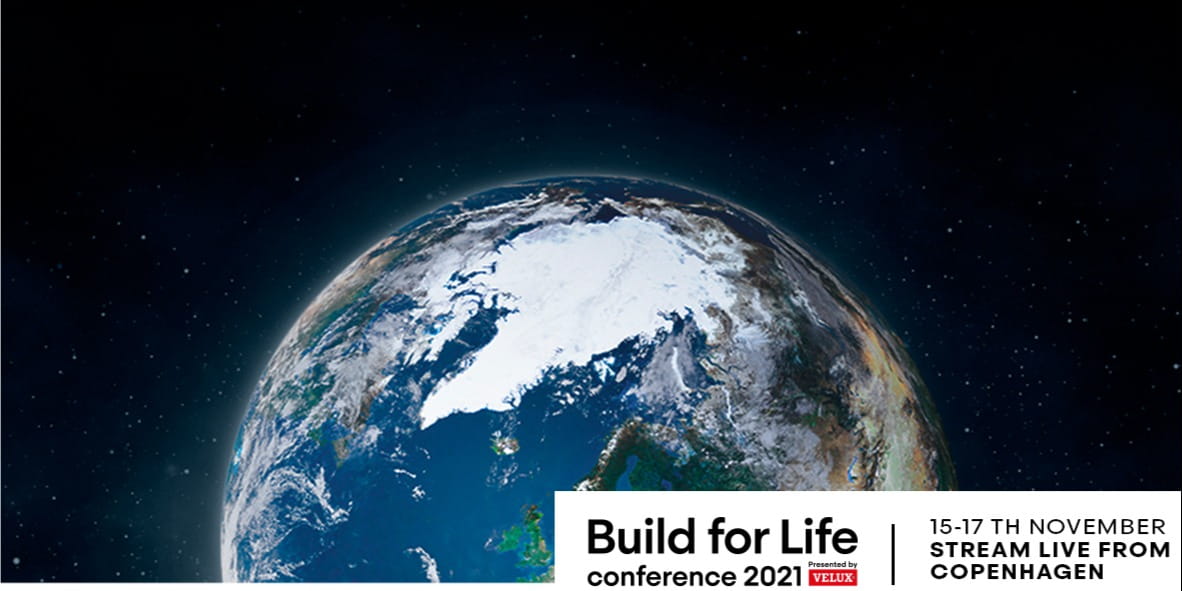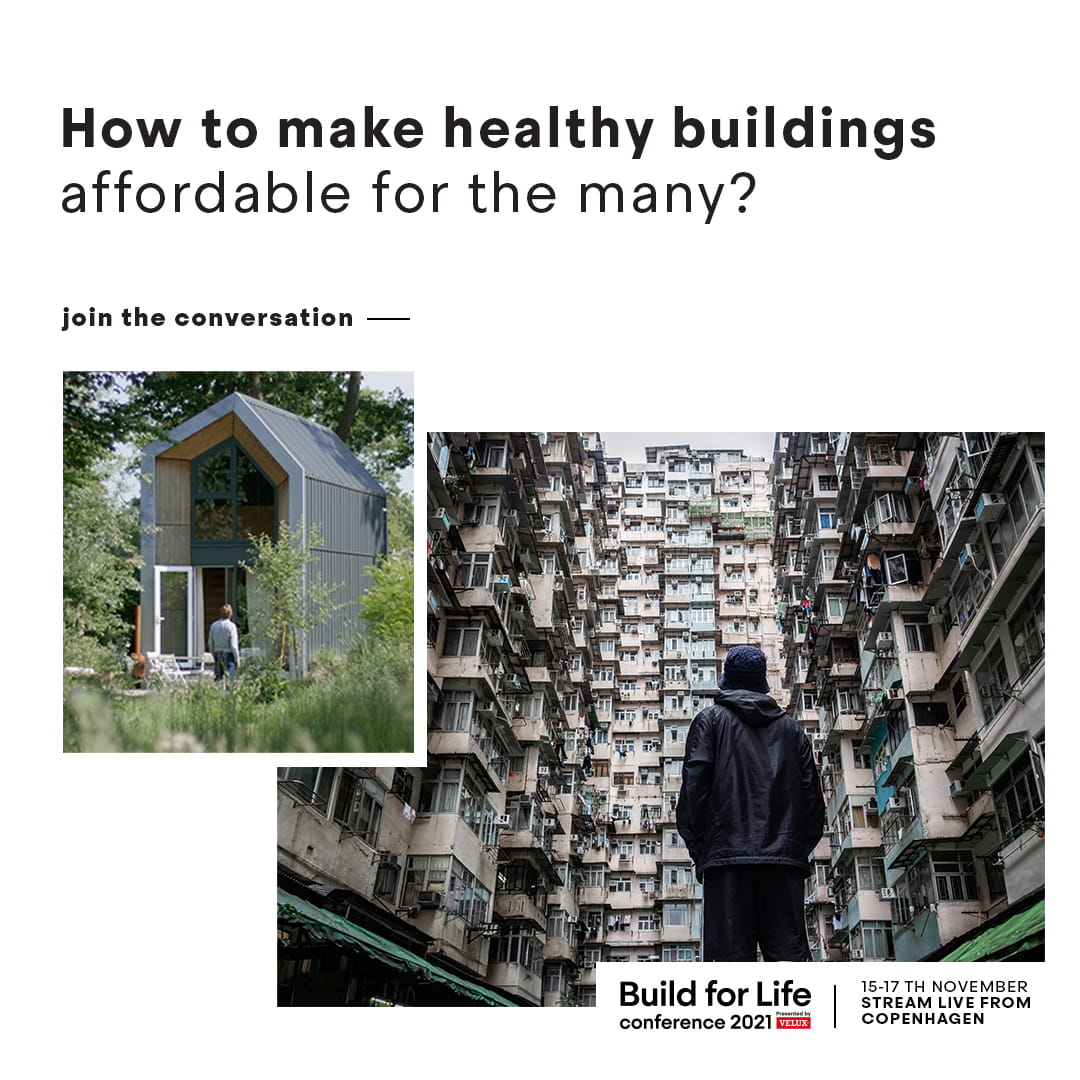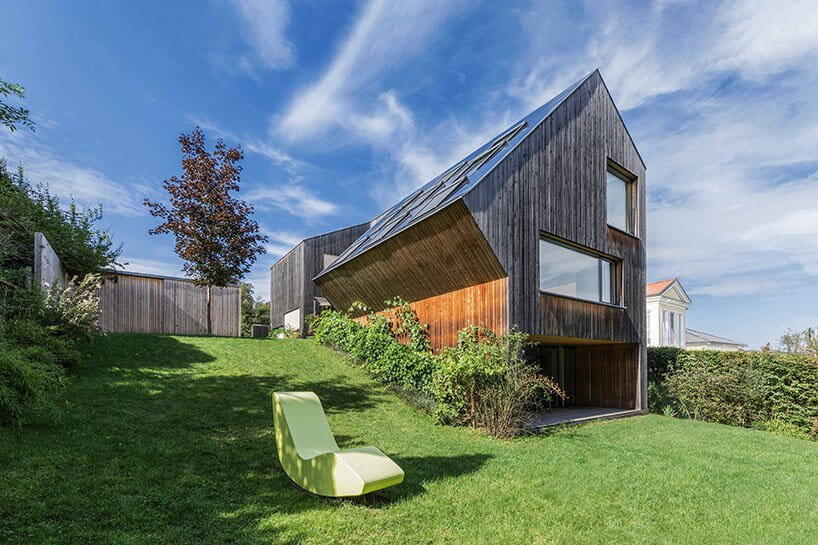
Velux presents inaugural ‘Build for Life’ conference bringing industry professionals together
Can we create well-being for people and the planet through building design?
At VELUX, we believe that we must actively address the climate-related challenges of the 21st century. We must do so by working together with the building industry to create healthy, sustainable buildings that improve the well-being of both people and planet.
The build for life conference 2021 is free for registration.




As a part of our sustainability strategy, we have committed to taking measurable steps toward positive change while focusing on how buildings can help resolve global challenges with sustainable solutions and practical action. One way we are doing this is through Build for Life, a pioneering, multi-disciplinary initiative launched in 2021 to help connect people and planet through better building design.
The Build for Life Conference 2021 is an open invitation to join a global conversation about how buildings can benefit the environment and improve the quality of life for people everywhere.




Join us, and take part in this global exchange of ideas from November 15-17 as we bring together architects, housebuilders, researchers and other opinion leaders to discuss some of the key challenges and opportunities facing the building industry now and in the future.
The three-day Build For Life Conference will feature more than 90 speakers and connect viewers from the global building industry and beyond. The conference is free for all and will be fully digital with presentations and interactive dialogues.
One vision – Two stages
The Compass Stage
Explore the seven biggest challenges and opportunities in the building industry today, including:
—The need for flexibility in design
—The shifting role of buildings in our communities
—New demands for healthier and more sustainable living spaces
Compass Stage speakers include:
Lidia Morawska (AU) Distinguished Professor at the Queensland University of TechnologyLidia will share the latest research from the interdisciplinary field of air quality and its impact on our health and the environment in the post-pandemic world, explaining how we can make our homes, schools and workspaces safe for people around the world.
Joseph Allen (US)Assistant Professor at the Harvard T.H. Chan School of Public HealthJoseph will offer fresh thinking about fresh air in buildings, using the latest science and research to make a case for how healthy indoor spaces drive performance and well-being.
Juri Troy (AT) Professor at HFT Stuttgart, Owner at Juri Troy ArchitectsJuri will shed light on the value and imperative of designing durable, long-lasting homes. Juri will also show how he created a beacon for sustainable design with his Austrian project, The Sunlight House, which uses good design and an innovative approach to daylight to optimise the building’s indoor climate and energy needs.
The Daylight Symposium Stage
Since 2005, the Daylight Symposium has explored the power of daylight to create healthy and resilient buildings. This year, more than 40 leaders in daylight research and practice come together to answer a single, critical question: how can we bridge the gap between daylight research and design practice?
Daylight Symposium speakers include:
Jakob Strømann Andersen (DK)
Director Innovation & Sustainability, Henning Larsen Architects
Can generative algorithms improve daylight design? Jakob’s presentation will address this question and show how we can run and explore a multitude of daylight designs, sort through the iterations and identify the best ones, all while providing detailed analysis for each proposal.
Manuel Spitschan (UK)
University Research Lecturer, Department of Experimental Psychology at University of Oxford
Manuel will discuss principles of circadian and neuroendocrine phototransduction, and how knowledge gathered from scientific and field studies can be used to support practice in an evidence-based fashion.
Till Roenneberg (DE)
Professor emeritus, Medical Faculty of the LMU Munich. President, World Federation of Societies for Chronobiology (WFSC)
Till will present learnings from recent studies investigating how we have been impacted by changes in lifestyle and our physical environment while in lockdown during the covid pandemic.
Yvonne de Kort (NL)
Professor and Chair of Environmental Psychology of Human-Technology Interaction, Department of Industrial Engineering andInnovation Sciences at Eindhoven University of Technology (TU/e)
Yvonne will present the LIGHTCAP project, a European Training Network under the Marie Skłodowska-Curie actions framework. LIGHTCAP aims to provide a strong, innovative and necessary impulse to our insights into the intricate and complex relationships between light, perception, attention and cognition.
SUBSCRIBE TO OUR NEWSLETTER



IMAGE GALLERY
SHARE ARTICLE
COMMENTS